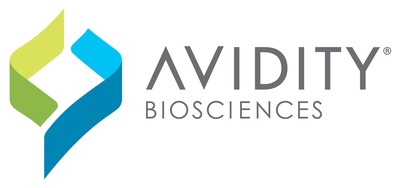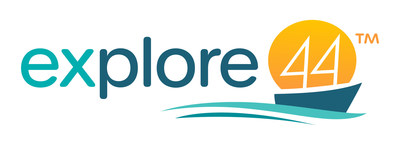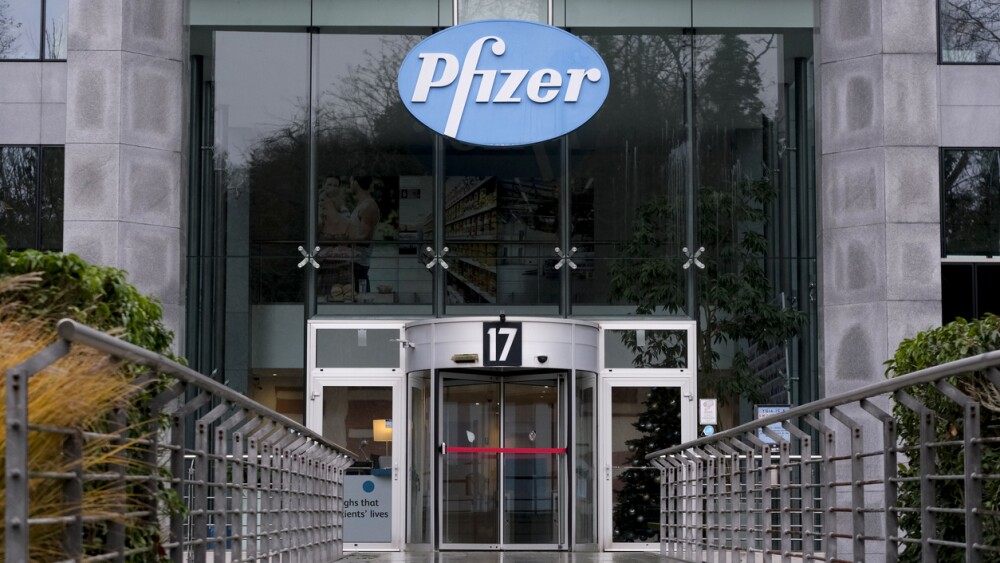Delpacibart zotadirsen (AOC 1044) delivered unsurpassed muscle concentrations of PMO of 200 nM after three doses of 5 mg/kg
Statistically significant 37% increase in exon 44 skipping and up to 66% skipping with delpacibart zotadirsen 5 mg/kg at four months
Statistically significant increase of 25% of normal in dystrophin production and restored total dystrophin up to 54% of normal with delpacibart zotadirsen 5 mg/kg at four months
Creatine kinase levels reduced to near normal with greater than 80% reduction compared to baseline with delpacibart zotadirsen 5 mg/kg at four months
Delpacibart zotadirsen data demonstrated favorable safety and tolerability
Volume 10 of virtual investor and analyst series today, Friday, Aug. 9 at 8:00 a.m. ET
SAN DIEGO, Aug. 9, 2024 /PRNewswire/ -- Avidity Biosciences, Inc. (Nasdaq: RNA), a biopharmaceutical company committed to delivering a new class of RNA therapeutics called Antibody Oligonucleotide Conjugates (AOCs™), today announced positive AOC 1044 5 mg/kg data demonstrated unsurpassed delivery of phosphorodiamidate morpholino oligomers (PMO) concentrations to skeletal muscle, statistically significant increase of 25% of normal in dystrophin production and statistically significant increase of 37% in exon 44 skipping in people living with Duchenne muscular dystrophy mutations amenable to exon 44 skipping (DMD44) in the Phase 1/2 EXPLORE44™ clinical trial. In addition, AOC 1044 5 mg/kg reduced creatine kinase levels to near normal with greater than 80% reduction compared to baseline. AOC 1044 demonstrated favorable safety and tolerability. Avidity also announced delpacibart zotadirsen as the approved international nonproprietary name of AOC 1044, abbreviated as del-zota.
"This is an exciting moment as these data suggest del-zota has the potential to change the treatment paradigm and course of disease for patients with Duchenne muscular dystrophy mutations amenable to exon 44 skipping. We have not seen this level of dystrophin production and reduction in creatine kinase with other PMO exon-skipping treatments," said Diana Castro, M.D., Board Certified Neurologist and Neuromuscular Physician, Founder and Director Neurology and Neuromuscular Care Center, Founder and Director Neurology Rare Disease Center and EXPLORE44 trial program investigator. "These del-zota data are very encouraging as children and adults living with Duchenne muscular dystrophy mutations amenable to exon 44 skipping are still in need of targeted treatment options to address this debilitating disease."
Del-zota is designed to deliver PMO to skeletal muscle and heart tissue to specifically skip exon 44 of the dystrophin gene to enable dystrophin production. Del-zota has been granted Orphan designation by the U.S. Food and Drug Administration (FDA) and the European Medicines Agency (EMA). The FDA has also granted del-zota Rare Pediatric and Fast Track designations. Del-zota is the first of multiple AOCs the company is developing for DMD.
"The robust exon skipping, significant dystrophin production, and profound reduction of creatine kinase reinforce our belief in the potential of del-zota to be an effective treatment for people living with DMD44. These data support expediting the regulatory path for del-zota as quickly as possible," said Sarah Boyce, president and chief executive officer. "Del-zota is the first AOC in development from our DMD franchise and with this data, we are also advancing additional exon-skipping DMD candidates."
This initial assessment from the randomized, double-blind, placebo-controlled Phase 1/2 EXPLORE44 trial of del-zota provides a look at the safety and tolerability for 25 participants across two dose levels (5 mg/kg and 10 mg/kg). For the four-month assessment in the 5 mg/kg cohort, participants received three doses of 5 mg/kg del-zota (PMO dose), or placebo every six weeks. Data on muscle delivery, exon skipping, dystrophin production and creatine kinase were assessed from 10 participants in the 5 mg/kg cohort.
In the Phase 1/2 EXPLORE44 study, del-zota demonstrated:
- Unsurpassed delivery of PMO of 200 nM in skeletal muscle
- Statistically significant 37% increase in exon 44 skipping and up to 66% exon 44 skipping
- Statistically significant increase of 25% of normal in dystrophin production and restored total dystrophin up to 54% of normal
- Reduction in creatine kinase levels to near normal with greater than 80% reduction compared to baseline
- Favorable safety and tolerability with most treatment emergent adverse events (AEs) mild or moderate in participants with DMD44.
Video Webcast Information
The company is hosting Volume 10 of its investor and analyst event series on August 9, 2024, beginning at 8:00 a.m. ET to discuss the initial data from the EXPLORE44TM trial of del-zota in people living with DMD44. The virtual event will be available via a live video webcast and can be accessed here or from the "Events and Presentations" page in the "Investors" section of Avidity's website. A replay of the webcast will be archived on Avidity's website following the event.
The EXPLORE44™ Phase 1/2 Trial of AOC 1044
The EXPLORE44™ trial is a randomized, placebo-controlled, double-blind, Phase 1/2 clinical trial to evaluate del-zota in healthy volunteers and participants with DMD mutations amenable to exon 44 skipping (DMD44). EXPLORE44 has completed enrollment and is evaluating the safety, tolerability, pharmacokinetics, and pharmacodynamic effects of single and multiple ascending doses of del-zota administered intravenously. The EXPLORE44 trial is assessing exon skipping and dystrophin protein levels in participants with DMD44. Participants with DMD44 have the option to enroll into an open-label extension study, EXPLORE44-OLE. For more information about the EXPLORE44 trial, visit the EXPLORE44 study website or visit https://www.clinicaltrials.gov and search for NCT05670730.
About Duchenne muscular dystrophy (DMD)
Duchenne muscular dystrophy (DMD) causes a lack of functional dystrophin that leads to stress and tears of muscle cell membranes, resulting in muscle cell death and the progressive loss of muscle function. The dystrophin protein maintains the integrity of muscle fibers and acts as a shock absorber through its role as the foundation of a group of proteins that connects the inner and outer elements of muscle cells. People living with DMD suffer from progressive muscle weakness that typically starts at a very young age. Over time, people with Duchenne will develop problems walking and breathing, and eventually, the heart and respiratory muscles will stop working. Those living with the condition often require special aid and assistance throughout their lives and have significantly shortened life expectancy. While there are treatments approved to treat people with DMD, there remains a very high unmet need. DMD is a monogenic, X-linked, recessive disease that primarily affects males, with one in 3,500 to 5,000 boys born worldwide having Duchenne.
About Del-zota (AOC 1044)
Del-zota (AOC 1044) is designed to deliver phosphorodiamidate morpholino oligomers (PMOs) to skeletal muscle and heart tissue to specifically skip exon 44 of the dystrophin gene to enable dystrophin production in people living with Duchenne muscular dystrophy with mutations amenable to exon 44 skipping (DMD44). DMD is characterized by progressive muscle degeneration and weakness due to alterations of a protein called dystrophin that protects muscle cells from injury during contraction. Del-zota consists of a proprietary monoclonal antibody that binds to the transferrin receptor 1 (TfR1) conjugated with a PMO targeting exon 44. In a preclinical model of DMD, a murine active AOC produced durable exon skipping and functional dystrophin protein in skeletal muscle and heart tissue following a single intravenous dose. Del-zota is currently in Phase 1/2 development as part of the EXPLORE44™ trial for the treatment of DMD mutations amenable to exon 44 skipping.
About Avidity
Avidity Biosciences, Inc.'s mission is to profoundly improve people's lives by delivering a new class of RNA therapeutics - Antibody Oligonucleotide Conjugates (AOCs™). Avidity is revolutionizing the field of RNA with its proprietary AOCs, which are designed to combine the specificity of monoclonal antibodies with the precision of oligonucleotide therapies to address targets and diseases previously unreachable with existing RNA therapies. Utilizing its proprietary AOC platform, Avidity demonstrated the first-ever successful targeted delivery of RNA into muscle and is leading the field with clinical development programs for three rare muscle diseases: myotonic dystrophy type 1 (DM1), Duchenne muscular dystrophy (DMD) and facioscapulohumeral muscular dystrophy (FSHD). Avidity is broadening the reach of AOCs with its advancing and expanding pipeline including programs in cardiology and immunology through internal discovery efforts and key partnerships. Avidity is headquartered in San Diego, CA. For more information about our AOC platform, clinical development pipeline and people, please visit www.aviditybiosciences.com and engage with us on LinkedIn and X.
Forward-Looking Statements
Avidity cautions readers that statements contained in this press release regarding matters that are not historical facts are forward-looking statements. These statements are based on the company's current beliefs and expectations. Such forward-looking statements include, but are not limited to, statements regarding: the characterization of safety, tolerability and efficacy data associated with del-zota from the Phase 1/2 EXPLORE44™ trial; the standards against which the del-zota data are being measured; the impact of such data on the advancement of del-zota; the plans and timing and advancement of the EXPLORE44 trial; the design and goals of the EXPLORE44 trial and individual cohorts therein; Avidity's DMD franchise; the potential of Avidity's product candidates to treat rare diseases and Avidity's efforts to bring them to people suffering from applicable diseases; and the potential of AOCs to target a range of different cells and tissues beyond the liver, and to treat cardiac and immunological diseases. This press release also contains estimates and other statistical data made by independent parties and by us. This data involves a number of assumptions and limitations, and the reader is cautioned not to give undue weight to such estimates.
The inclusion of forward-looking statements should not be regarded as a representation by Avidity that any of these plans will be achieved. Actual results may differ from those set forth in this press release due to the risks and uncertainties inherent in Avidity's business and those beyond its control, including, without limitation: preliminary results of a clinical trial are not necessarily indicative of final results and additional data related to del-zota that continues to become available may be inconsistent with the data produced as of the date hereof, and further analysis of existing data and analysis of new data may lead to conclusions different from those established as of the date cutoff; unexpected adverse side effects to, or inadequate efficacy of, Avidity's product candidates that may delay or limit their development, regulatory approval and/or commercialization, or may result in additional clinical holds which may not be timely lifted, recalls or product liability claims; Avidity is early in its development efforts; Avidity's approach to the discovery and development of product candidates based on its AOC platform is unproven, and the company does not know whether it will be able to develop any products of commercial value; potential delays in the commencement, enrollment, data readouts and completion of preclinical studies or clinical trials; Avidity's dependence on third parties in connection with preclinical and clinical testing and product manufacturing; regulatory developments in the United States and foreign countries; and other risks described in Avidity's Annual Report on Form 10-K for the fiscal year ended December 31, 2023, filed with the Securities and Exchange Commission (SEC) on February 28, 2024, and in subsequent filings with the SEC. Avidity cautions readers not to place undue reliance on these forward-looking statements, which speak only as of the date hereof, and the company undertakes no obligation to update such statements to reflect events that occur or circumstances that arise after the date hereof. All forward-looking statements are qualified in their entirety by this cautionary statement, which is made under the safe harbor provisions of the Private Securities Litigation Reform Act of 1995.
Investor Contact:
Mike MacLean
(619) 837-5014
investors@aviditybio.com
Media Contact:
Navjot Rai
(619) 837-5016
media@aviditybio.com
![]() View original content to download multimedia:https://www.prnewswire.com/news-releases/avidity-biosciences-announces-positive-aoc-1044-data-demonstrated-significant-increase-of-25-in-dystrophin-production-and-reduction-of-creatine-kinase-levels-to-near-normal-in-people-living-with-duchenne-muscular-dystrophy-amenab-302218647.html
View original content to download multimedia:https://www.prnewswire.com/news-releases/avidity-biosciences-announces-positive-aoc-1044-data-demonstrated-significant-increase-of-25-in-dystrophin-production-and-reduction-of-creatine-kinase-levels-to-near-normal-in-people-living-with-duchenne-muscular-dystrophy-amenab-302218647.html
SOURCE Avidity Biosciences, Inc.







